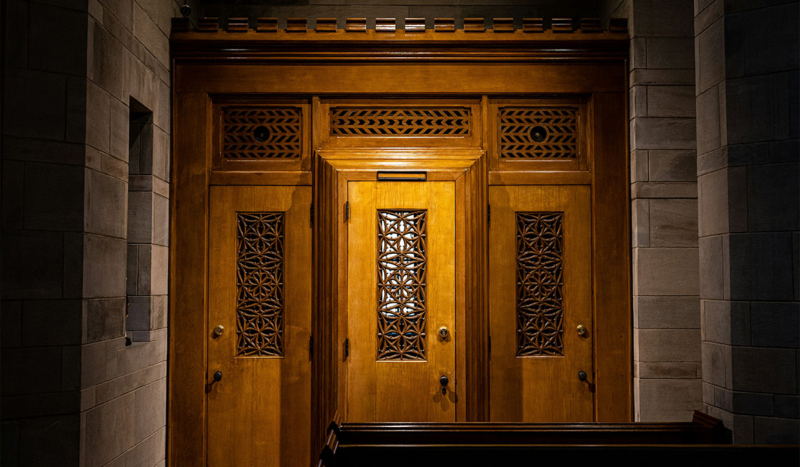
Nick Castelli / Unsplash
Washington’s bishops filed a motion June 5 in federal court seeking a preliminary injunction to block a new law — set to go into effect July 27 — that would require priests to report child abuse if a penitent discloses it in the confessional.
CatholicVote previously reported that the bishops filed a lawsuit over the law against Democratic Gov. Bob Ferguson and dozens of county prosecutors May 29. The bishops argue that the law, which Ferguson signed May 2, unconstitutionally targets Catholic priests and violates their First and Fourteenth Amendment rights.
The law threatens priests who refuse to break the seal of confession to report child abuse with up to 364 days in jail, a $5,000 fine, and potential civil liability.
The requested preliminary injunction would block the law from going into effect while the bishops’ lawsuit plays out in court. According to the Becket Fund for Religious Liberty, one of the law firms representing the bishops, a hearing in the case will likely occur this summer.
Becket stated in a news release that the Catholic Church in Washington is committed to protecting children and maintaining safe environments. Priests and those employed by the Church across the state are already mandatory reporters of child abuse, except for instances in which a priest obtains the information during the sacrament of Confession.
Mark Rienzi, president and CEO of Becket, objected to the fact that the law still does not require other individuals, such as lawyers, to report child abuse, but revoked priest-penitent confidentiality.
“Washington state has no business intruding into the confessional — particularly when they give a free pass to lawyers who have legally protected confidential relationships with clients,” he stated in the release. “Punishing priests for following the Catholic Church’s millennia-old faith traditions isn’t just wrong, it’s unconstitutional.”
Jean Hill, executive director of the Washington State Catholic Conference, also opposed the law, highlighting the importance of unrestricted access to confession for Catholics.
“Confession is a sanctuary for the human soul and must be kept private not only because it’s a sacred duty of Catholic priests, but also to ensure the faithful are free to participate in this act of reconciliation with their God,” Hill stated in the release. “We are hopeful that the court will recognize [that] the law not only punishes priests but sets a dangerous precedent that erodes trust in sacred practices for all faiths.”

